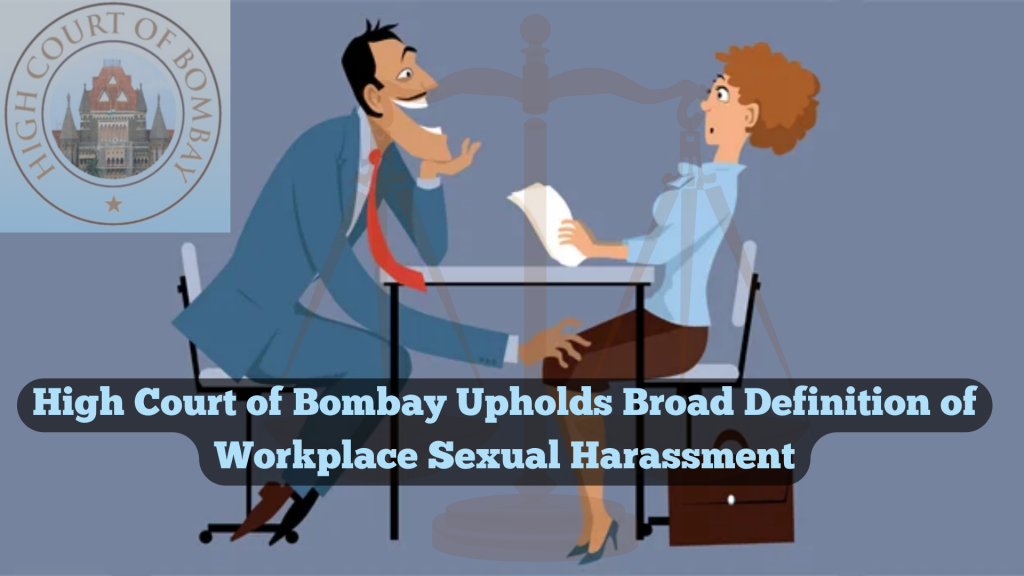
High Court Of Bombay Upholds Broad Definition Of Workplace Sexual Harassment
Judgement Given On : 09/01/2019
In a notable case of Sapana Korde Nee Ketaki A. Ghodinde v. The State of Maharashtra & Ors. before the High Court of Bombay, a crucial interpretation of workplace sexual harassment was established. The court disagreed with the Internal Complaints Committee’s (IC) conclusion that a complaint filed by a woman amounted to misconduct and misbehavior rather than sexual harassment. The complainant had reported that her subordinate used abusive and unprofessional language against her. The court observed that the IC had failed to consider the comprehensive circumstances outlined under Section 3(2) of the POSH Act, which encompassed various forms of sexual harassment. These included creating an intimidating or hostile work environment for women and subjecting them to humiliating treatment that could affect their health and safety.
The case involved a complaint lodged by the appellant, Sapana Korde, against her subordinate, Bhaskar Gaikwad. The complaint alleged improper behavior and the use of abusive language by Gaikwad towards her. The matter was referred to the Internal Complaints Committee (IC) for inquiry.
The IC unanimously determined that the complaint did not constitute sexual harassment at the workplace. Instead, it concluded that the issue should be addressed by the appropriate Disciplinary Committee.
Court’s Observations:
- The High Court emphasized that interference with a woman’s work or the creation of an intimidating, offensive, or hostile work environment amounted to sexual harassment in the workplace.
- Furthermore, providing humiliating treatment likely to affect the health or safety of a woman at her workplace also qualified as sexual harassment.
- The court noted that the IC had not taken these circumstances into account when evaluating the complaint. Instead, it had focused on categorizing the behavior as misconduct and misbehavior rather than recognizing the broader definition of sexual harassment under Section 3(2) of the POSH Act.
- Importantly, the IC did not make any findings that the appellant’s complaint was false, malicious, or vexatious. Nor did any authority conclude that her complaint had been made to cause injury or annoyance to the person accused.
Court’s Verdict:
The High Court allowed the appeal, signaling that it was crucial to consider the broader definition of workplace sexual harassment encompassed in Section 3(2) of the POSH Act. In this case, the IC’s narrow interpretation of the complaint was not aligned with the legal framework, and therefore, the court upheld the appellant’s appeal.
This ruling by the High Court of Bombay underscores the importance of adopting an inclusive interpretation of workplace sexual harassment. By recognizing that creating a hostile or offensive environment for women or subjecting them to humiliating treatment can amount to sexual harassment, the court expands the scope of protection for victims. This decision ensures that complaints are considered in light of the comprehensive definition provided in the law, safeguarding the rights and well-being of individuals in the workplace.
